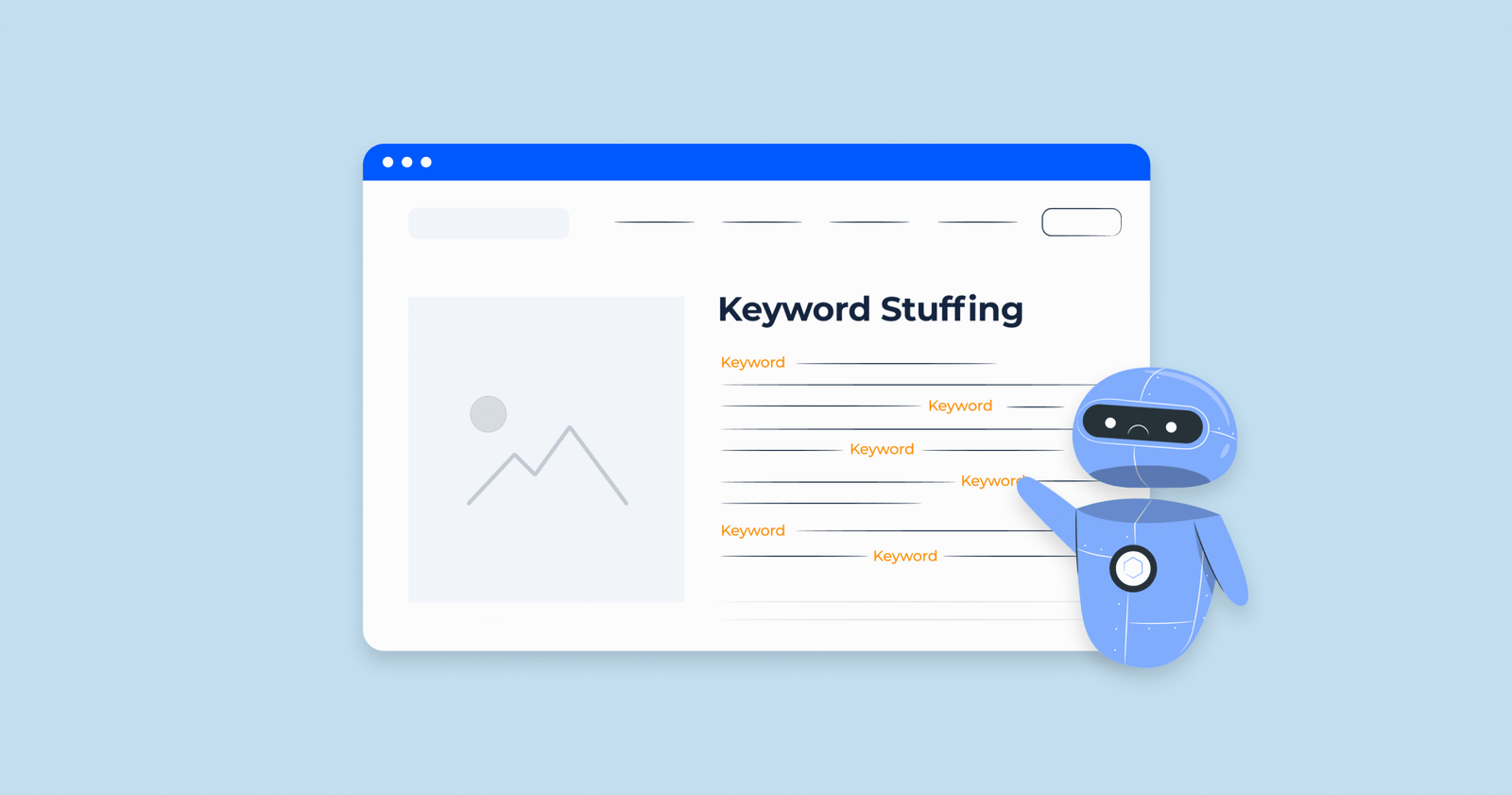
Search rankings aren’t what they used to be. You could once write a decent post, stuff in your target keyword a dozen times, and watch traffic roll in. But now, many site owners even those with “good” content are seeing their pages slide down the search results. Why? Because Google’s ranking systems have changed, and old habits like keyword stuffing or publishing average AI-generated posts can do more harm than good.
This article explains why keyword stuffing in SEO is a red flag, why sites are being deranked even if they mean well, and most importantly what to do about it in 2025 and beyond.
Content Saturation & AI Overuse
The internet is drowning in content. Every day, millions of new blog posts, AI articles, and filler guides flood the web. Much of it looks the same: generic advice, recycled facts, and keyword-driven fluff.
Google knows this. That’s why they’re actively pushing down content that doesn’t stand out. AI overuse, especially when paired with keyword stuffing, creates what Google calls “content saturation.” If your article doesn’t bring fresh insights, unique data, or a real perspective, it risks getting buried under higher-quality competitors.
Helpful Content System → Core Integration
In 2022, Google launched the Helpful Content Update. It was meant to target “content made for search engines, not people.” Now, this system has been integrated into Google’s core ranking algorithm.
This means your site’s weak content thin posts, repetitive keyword-stuffed articles, or unhelpful AI blurbs doesn’t just fail to rank. It can actually drag down your entire domain’s visibility.
User Signals & Engagement Metrics
Google watches how people interact with your site. These “user signals” send strong ranking feedback:
- CTR (Click-Through Rate): If your titles don’t attract clicks, Google assumes you’re irrelevant.
- Dwell Time: If people leave quickly, it signals poor content quality.
- Bounce Rates: High bounces tell Google users didn’t find value.
- Engagement: Comments, shares, and return visits build trust.
Keyword stuffing in SEO often creates awkward, unnatural writing. That hurts engagement, leading to low user signals which in turn drives rankings down.
Over-Optimization Triggers
Google doesn’t just punish spammy sites. Even genuine websites can trip over-optimization triggers, such as:
- Repeating keywords too often (classic keyword stuffing)
- Overloading internal links with exact-match anchors
- Forcing topical clusters that don’t feel natural
- Publishing “SEO-first” articles without real value
If your site feels like it was built for Google instead of humans, it risks penalties even if your intentions were good.
AI-Driven SERPs & Zero-Click Searches
Another reason sites are losing traffic: Google is keeping more users on its own search pages.
- AI Overviews now give direct answers.
- Rich Snippets highlight key facts.
- Knowledge Panels show summaries without clicks.
This means fewer people actually click on organic results even top ones. Sites relying on keyword stuffing in SEO to “force” clicks are hit hardest because Google favors content that provides depth, not surface-level answers.
YMYL (Your Money, Your Life) Strictness
If your site covers sensitive topics like health, finance, or law, Google applies extra strictness. These are called YMYL niches.
Here, keyword stuffing is especially dangerous. Google wants:
- Credentials: Who wrote the content?
- Authority: Is the author recognized in their field?
- Trust: Does the site cite reliable sources?
Without these signals, even a well-written post can be deranked. For YMYL topics, expertise beats SEO tricks every time.
Site Reputation & Link Quality
Links still matter, but not all are created equal.
Spammy link-building, directory submissions, or link swaps won’t save you from keyword stuffing penalties. In fact, they make things worse. Google now favors:
- Brand mentions in the press
- High-authority backlinks (editorial, not paid or forced)
- Positive reputation signals (reviews, community discussions)
Your site’s reputation matters more than the sheer number of links.
What Else You Need to Do to Rank in 2025
Keyword stuffing in SEO is outdated. To survive Google’s future updates, focus on these strategies:
Prioritize Real-World Experience
Use case studies, experiments, and unique visuals. Share personal results and insider knowledge Google can’t find elsewhere.
Strengthen Author Bios & Brand Authority
Show who’s behind your content. Build credibility through LinkedIn profiles, guest publications, and PR features.
Prune or Noindex Weak Content
Audit your site regularly. Remove or noindex pages that don’t provide value. Fewer strong posts beat hundreds of weak ones.
Improve UX Metrics
Optimize for speed, mobile design, and interactivity. The smoother your site feels, the better your rankings.
Diversify Traffic
Don’t depend only on Google. Build audiences through social media, newsletters, YouTube, and podcasts.
Go Deeper into Subtopics
Instead of chasing surface-level keyword clusters, dig into niche subtopics. Cover angles your competitors miss.
Build Community & Engagement
Encourage comments, reviews, and discussions. A loyal audience is harder to dethrone than a keyword-stuffed article.
Keyword-Focused SEO vs. Experience-Driven SEO
| Approach | Pros | Cons |
| Keyword-Focused SEO | Can bring quick traffic if competition is low. Easy to scale with AI content. | Risks keyword stuffing penalties. Weak engagement signals. Vulnerable to updates. Little long-term trust. |
| Experience-Driven SEO | Builds authority, trust, and lasting rankings. Stronger engagement signals. Works across all updates. | Slower results. Requires effort: case studies, visuals, expert input. |
FAQs About Keyword Stuffing in SEO
What is keyword stuffing in SEO?
Keyword stuffing is the practice of unnaturally repeating the same keyword in content, titles, or links in an attempt to manipulate rankings.
Why is keyword stuffing bad for SEO?
It hurts readability, lowers engagement metrics, and triggers Google’s spam filters. Instead of boosting rankings, it usually causes drops.
How many times should I use a keyword?
There’s no “perfect number.” Use keywords naturally, focusing on answering the query. If it sounds forced, you’re overdoing it.
Can AI-generated content rank?
Yes but only if it’s edited, improved, and made unique. Pure AI output with keyword stuffing is unlikely to survive Google updates.
How do I recover if my site is hit by keyword stuffing issues?
Audit your content, remove or rewrite keyword-stuffed posts, improve user engagement, and focus on adding value through experience and authority.
Final Thoughts
Keyword stuffing in SEO is not just outdated it’s dangerous. Google’s algorithms are smarter than ever, and they reward trust, expertise, and originality over shortcuts.
If your site has been deranked, don’t panic. Audit your content, strip out weak pages, and double down on authentic, human-driven strategies. The future of SEO isn’t about stuffing keywords. It’s about earning trust, engaging users, and building real authority.





